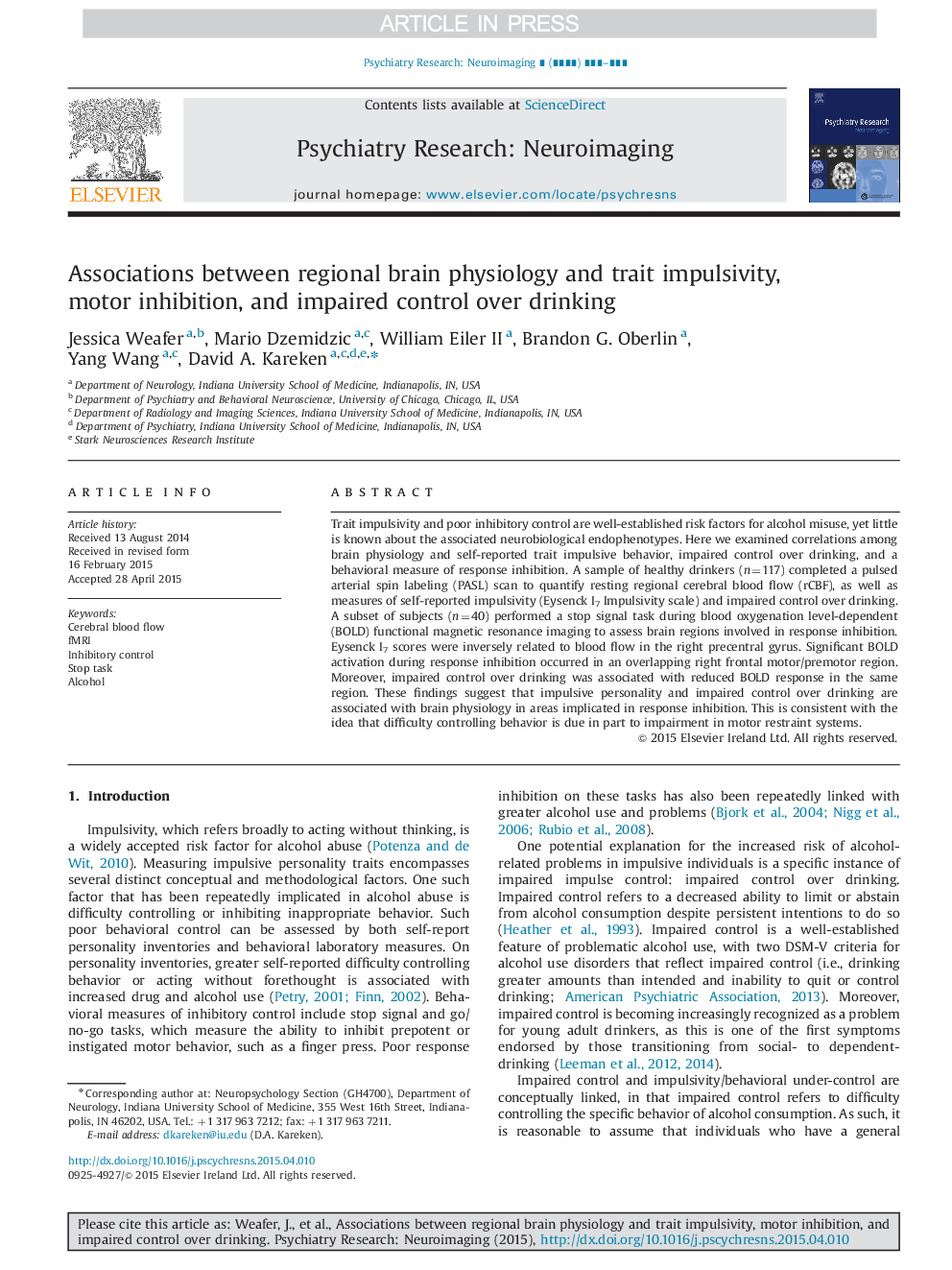| Article ID | Journal | Published Year | Pages | File Type |
|---|---|---|---|---|
| 10305351 | Psychiatry Research: Neuroimaging | 2015 | 7 Pages |
Abstract
Trait impulsivity and poor inhibitory control are well-established risk factors for alcohol misuse, yet little is known about the associated neurobiological endophenotypes. Here we examined correlations among brain physiology and self-reported trait impulsive behavior, impaired control over drinking, and a behavioral measure of response inhibition. A sample of healthy drinkers (n=117) completed a pulsed arterial spin labeling (PASL) scan to quantify resting regional cerebral blood flow (rCBF), as well as measures of self-reported impulsivity (Eysenck I7 Impulsivity scale) and impaired control over drinking. A subset of subjects (n=40) performed a stop signal task during blood oxygenation level-dependent (BOLD) functional magnetic resonance imaging to assess brain regions involved in response inhibition. Eysenck I7 scores were inversely related to blood flow in the right precentral gyrus. Significant BOLD activation during response inhibition occurred in an overlapping right frontal motor/premotor region. Moreover, impaired control over drinking was associated with reduced BOLD response in the same region. These findings suggest that impulsive personality and impaired control over drinking are associated with brain physiology in areas implicated in response inhibition. This is consistent with the idea that difficulty controlling behavior is due in part to impairment in motor restraint systems.
Related Topics
Life Sciences
Neuroscience
Biological Psychiatry
Authors
Jessica Weafer, Mario Dzemidzic, William Eiler II, Brandon G. Oberlin, Yang Wang, David A. Kareken,
